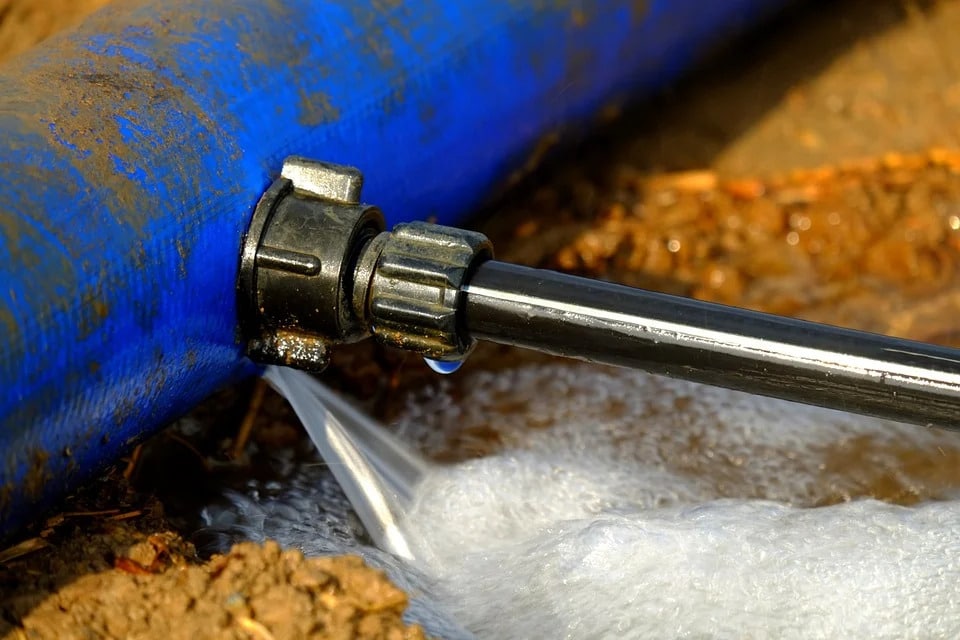What To Do In the Face of a Exploded Pipe: Closing Your Main Water Line
What To Do In the Face of a Exploded Pipe: Closing Your Main Water Line
Blog Article
This post following next about What Do I Do If I Have A Burst Pipe In My Home? is relatively informative. Don't miss out on it.

You need to recognize how to shut off your major water line if you suffer from a burst pipeline. Don't wait for a plumbing emergency before discovering exactly how to get this done. Besides, apart from emergency leakages, you will require to turn off your main water valve for plumbing repairs or if you leave for a long journey. Find out more about it in this mini overview.
Why Must You Close the Main Line Off?
Acquainting yourself with how your mainline switches on and off can conserve you during an emergency. For example, when a pipeline instantly bursts in your residence, you'll be besieged with panic. Thus, you can conveniently close the shutoff off and also prevent much more damages if you recognize what to do. Furthermore, shutting this off assures you do not need to take care of an abrupt flood in your home.
On top of that, closing and opening up the valves from time to time ensures they don't get stuck. It is also the most effective time for you to inspect for rust or various other busted links. In addition, make it a point to enlighten various other relative on what to do. This makes normal upkeep and handling emergencies so much easier. You can possibly save yourself hundreds of dollars in repairs.
Where is This Primary Shutoff Situated?
The primary water line supply can differ, so you might need to locate time to identify where it is. Regrettably, when your home is obtaining drenched because of a burst pipeline, you don't have the high-end of time throughout an emergency. Therefore, you should get ready for this plumbing circumstance by learning where the shutoff lies.
This shutoff valve might look like a ball shutoff (with a lever-type handle) or an entrance shutoff (with a circle spigot). Positioning depends on the age of your house as well as the climate in your area. Inspect the adhering to common areas:
Must This Constantly Be Shut Off?
Other than emergency situations, repair services, or long getaways, you may not need to shut off the main shutoff. For example, if only one component has issues, you can turn off the branch valve because spot. In this manner, you can still utilize water in various other parts of your home. For ideal outcomes, call a reputable plumber for emergency situations.
What to Do When a Pipe Bursts in Your Home
A burst pipe is one of a homeowner's worst nightmares. Not knowing the signs and being unprepared for this plumbing issue can result in more water damage and clean up. Here are the warning signs of a pipe about to burst and the steps you can take if it happens.
Warning Signs for Burst Pipes
Rusty, discolored water with a bad smell Puddles under your sinks Abrupt changes in water pressure A spike in your water bill Clanging noises coming from pipes behind the walls What to Do When a Pipe Bursts
Turn off your water. The sooner you do this, the better. Shutting off your main valve will help minimize the damage to your home.
Drain the faucets. After the water has been turned off, drain the remaining water by opening your faucets. Doing so will help prevent areas from freezing and also relieve pressure within your pipe system to avoid more bursts.
Locate the burst pipe. Look for bulging ceilings, warping and other signs of where the water damage has occurred. Once you locate the pipe, you will be able to determine if it is a small crack that can be patched or a major repair that needs to be dealt with right away.
Call a professional. If you need significant repairs, contact a professional to come in as soon as possible. At Mr. Rooter Plumbing of Oneida, we offer 24/7 emergency service for your convenience.
Document the damage. If you have extensive pipe damage, be sure to take photos of the affected areas so you can document a claim with your insurance. Take close-up photos of the damage and use a measuring tape to show how high the water is. You should also take photos from different angles for a wider picture of the affected areas.
Start cleaning. After you have documented the damage, start cleaning up the water as soon as possible. The longer the water sits, the higher the chance that mold will develop.
https://www.mrrooter.com/oneida/about-us/blog/2020/june/what-to-do-when-a-pipe-bursts-in-your-home/

I ran across that review on Steps to Take When a Pipe Bursts while scouting around the search engines. Do you know anybody else who is curious about the topic? Take a moment to share it. Many thanks for your time spent reading it.
No more waits, dial now! Report this page